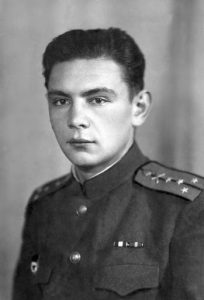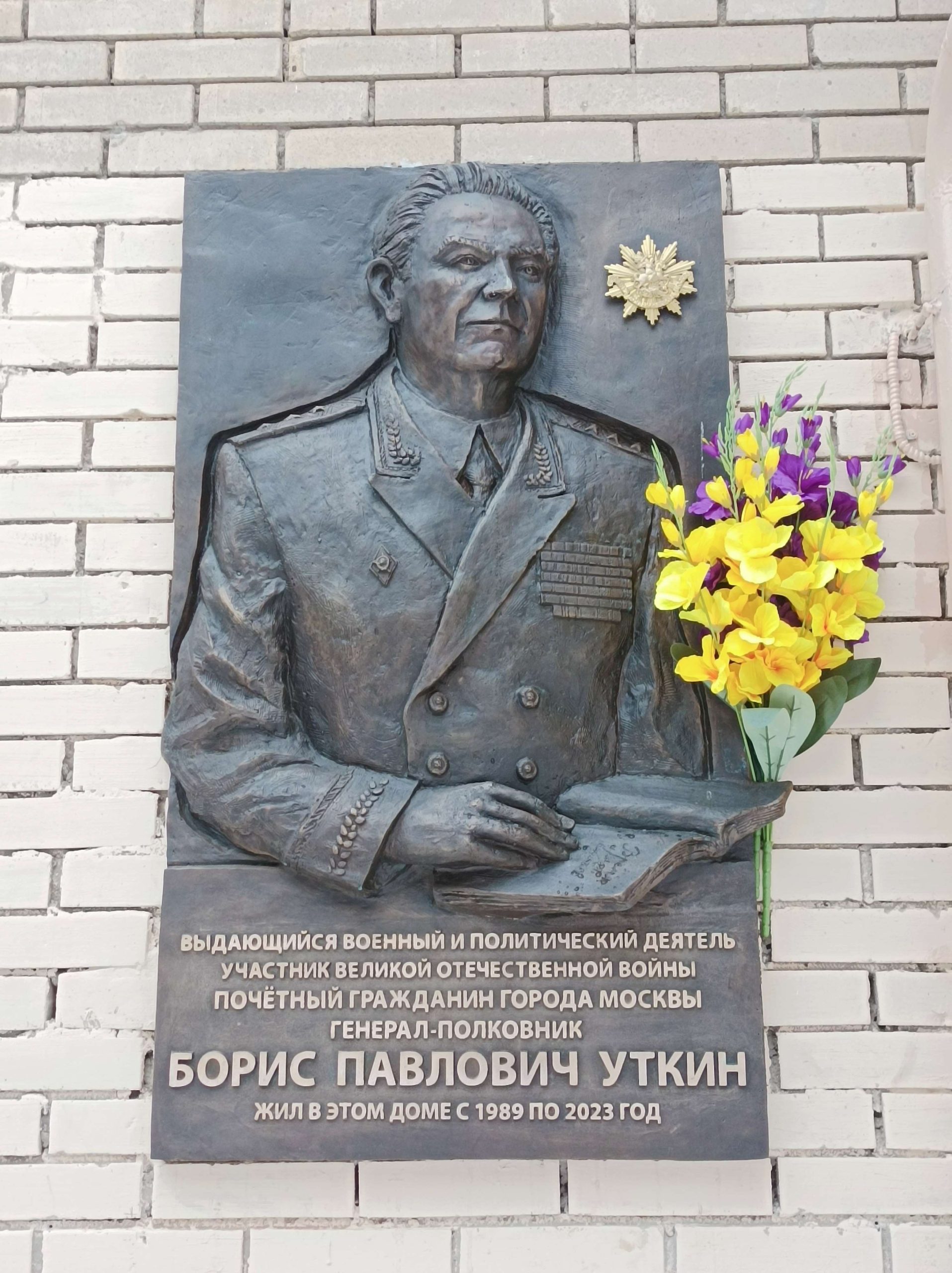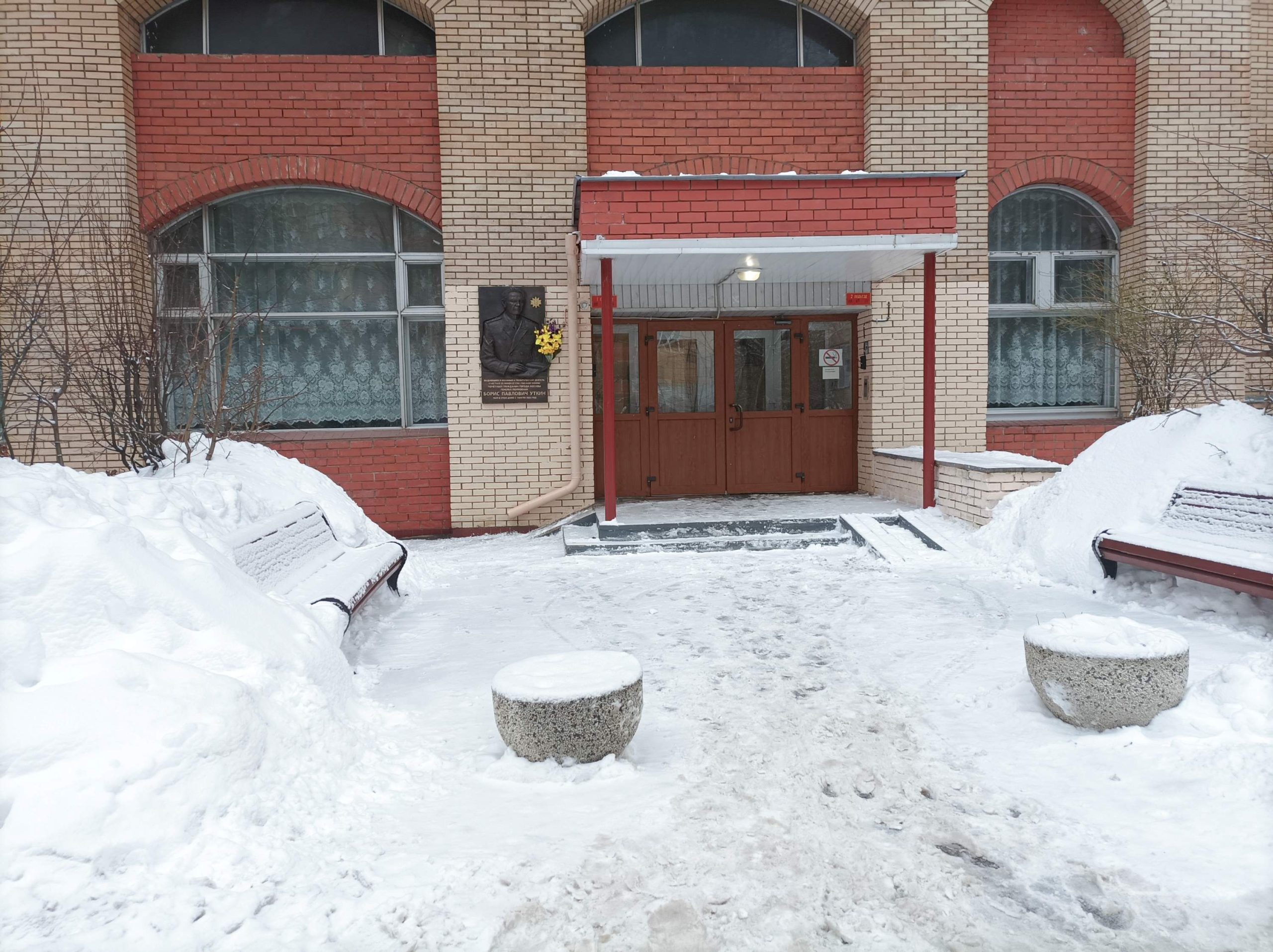Boris Pavlovich
Utkin
1923-2023

Boris Pavlovich Utkin was a Soviet artilleryman and military politician, Colonel General, honorary citizen of Moscow, participant in the Red Square parade on 7 November, 1941. He was born on 23 February 1923 in the village of Petrovskoye, the Bronnitsky district, the Moscow governorate. He finished primary school in his native village and secondary school in the village of Sinkovo, the Ramensky district. In 1938 he joined the Komsomol and was active in military sports and amateur art. At the beginning of the Great Patriotic War, Boris Pavlovich Utkin was sent by the district military recruitment office to the 1st Moscow Red Banner Artillery School named after L.B. Krasin. He took part in the Red Square parade on 7 November, 1941. He served in the 390th Separate Guards Mortar Division, first as a platoon leader. In 1942 he became deputy battery commander, in January 1943 – battery commander. In May 1943, Boris Pavlovich Utkin was appointed as Chief of Staff, and from February 1944, with the rank of Captain, he led the division. He fought against the forces of Nazi Germany on the Voronezh, Steppe and 2nd Ukrainian fronts. He took part in many key battles of the Great Patriotic War: the Battle of Stalingrad, the Battle of Kursk, the Battle of the Dnieper, the Battle of Korsun-Shevchenkovo, the Uman-Botosani, Yaski-Kishinyov, Carpathian and Debrecen operations, the liberation of Hungary and Austria. At the end of the war, Boris Pavlovich Utkin was appointed as Commander of the 1st Special Division of the new BM-13DD rocket systems. After the end of hostilities, he was transferred to the Tambov Research and Test Centre, then served as Deputy Chief of Staff of the 481st Artillery Brigade. He completed special mobilisation courses and participated in the development of the first post-war mobilisation plan. He studied for two years at the University of Marxism-Leninism. In 1949 he entered the artillery faculty of Lenin Military Political Academy, from which he graduated in 1953. From 1953 to 1959 he was Deputy Regimental Commander for political affairs. From 1953 to 1959, he was Deputy Regimental Commander for political affairs in the Moscow Military District and the Group of Soviet Forces in Germany (GSVG); from 1960 to 1967, he was Chief of the artillery’s political department. From 1960 to 1967 he was Chief of the Political Department of the Artillery and Motorised Rifle Divisions of the GSVG, then served in the Ural Military District. In 1959-1961 he completed special courses at M.I. Kalinin Artillery Academy. From 1967 to October 1971 he was the Head of the Sverdlovsk Higher Military-Political School of Tank Artillery. From 1971 he served in command, training and educational bodies at the operational, operational-strategic and strategic levels: member of the Military Council of the 2nd Armoured Guards (GSVG, 1971-1975), the Volga Military District (Kuibyshev, 1975-1981), assistant to the Commander-in-Chief of the Warsaw Pact troops on political issues (Warsaw, 1981-1982), deputy head of the Main Political Directorate of the Soviet Army and Navy (1981-1984), member of the Military Council of the Western troops (1984-1989). He was elected as a delegate to the XXIII-XXVII Congresses, XIX Conference of the CPSU. He was a deputy of the Supreme Soviet of the RSFSR (1976-1985) and the BSSR (1985-1990), and participated in the work of the Pardon Commission of the Supreme Soviet of the USSR. He retired in 1989 with the rank of Colonel General. Later he continued to work as a senior researcher in the editorial department of the Military Encyclopaedia of the Institute of Military History, actively engaged in the development of patriotic education of young people. In memory of Boris Pavlovich Utkin, a memorial plaque was placed on the house where he lived (60 Novocheremushkinskaya St., building 2).
Address: Moscow, Novocheremushkinskaya str., 60, building 2

